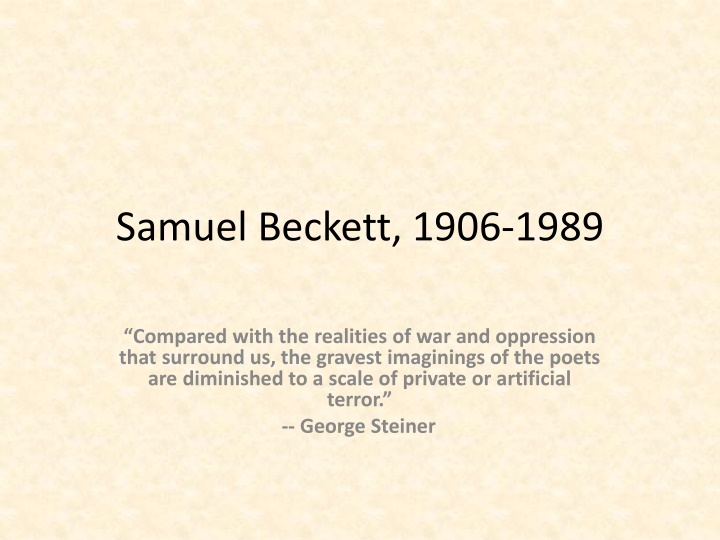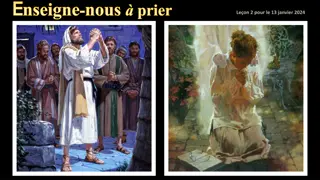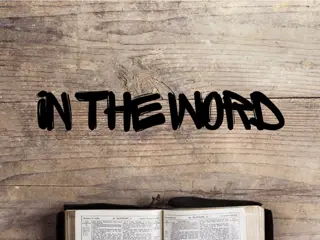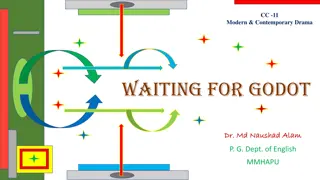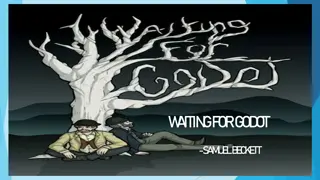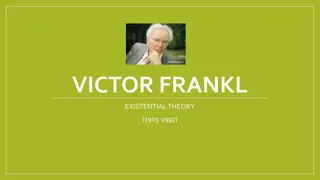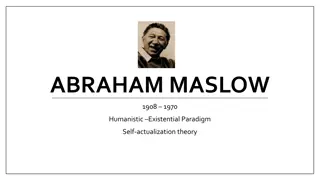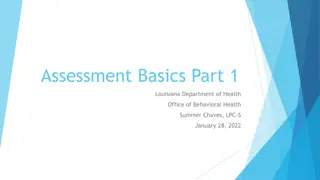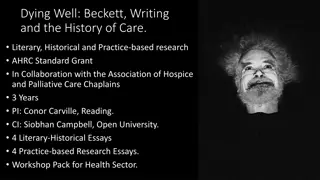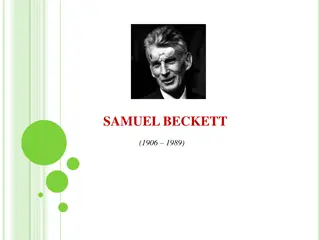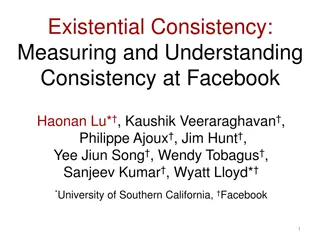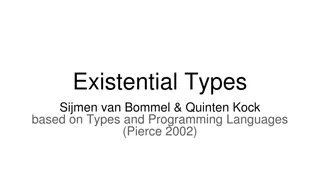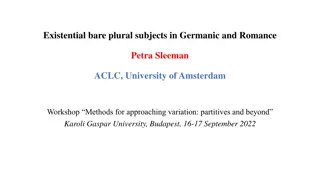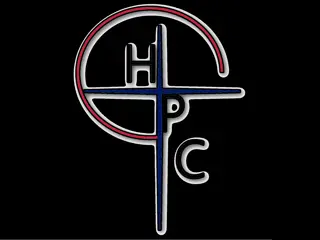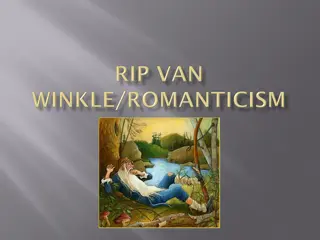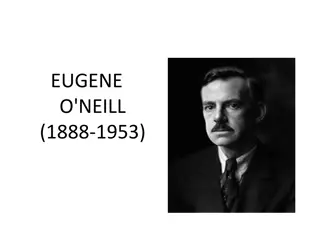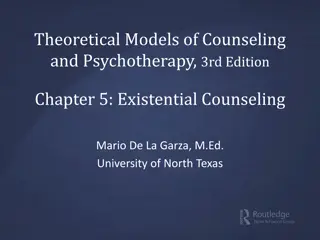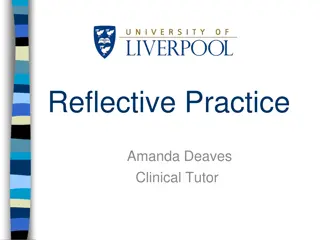Insights into Samuel Beckett's Existential World: A Reflection on Language and Despair
Delve into the poignant world of Samuel Beckett, exploring themes of existential despair, the futility of language, and the human condition through his renowned works like "Waiting for Godot" and "Endgame." Through introspective quotes and character sketches, this exploration offers a glimpse into Beckett's unique portrayal of the complexities of life and the eternal search for meaning amid absurdity.
Download Presentation

Please find below an Image/Link to download the presentation.
The content on the website is provided AS IS for your information and personal use only. It may not be sold, licensed, or shared on other websites without obtaining consent from the author.If you encounter any issues during the download, it is possible that the publisher has removed the file from their server.
You are allowed to download the files provided on this website for personal or commercial use, subject to the condition that they are used lawfully. All files are the property of their respective owners.
The content on the website is provided AS IS for your information and personal use only. It may not be sold, licensed, or shared on other websites without obtaining consent from the author.
E N D
Presentation Transcript
Samuel Beckett, 1906-1989 Compared with the realities of war and oppression that surround us, the gravest imaginings of the poets are diminished to a scale of private or artificial terror. -- George Steiner
Irish; short academic career in Ireland; friend of James Joyce; moves to Paris; publishes poetry and novels; friend of Duchamp and other modernists; worked and fought in French Resistance after invasion of France in 1940 (decorated post-war); 1953-55: Waiting for Godot (Beckett "has achieved a theoretical impossibility a play in which nothing happens, that yet keeps audiences glued to their seats. What's more, since the second act is a subtly different reprise of the first, he has written a play in which nothing happens, twice. ) 1957: Endgame; 1969 Nobel Prize for Literature
Why, Mr. Beckett, with your despair about language and words do you continue to write? That is what I am trying to find out.
Dramatis personae Hamm: can t stand up; blind Clov: can t sit down Nagg: father, amputee in ashcan Nell: mother, amputee in ashcan lost [their legs] when they crashed on the tandem
quotes The end is in the beginning and yet you go on. (H: 77) I use the words you taught me. If they don't mean anything any more, teach me others. Or let me be silent. (C: 51) Nothing is funnier than unhappiness, I grant you that Yes, yes, it's the most comical thing in the world. And we laugh, we laugh, with a will, in the beginning. But it's always the same thing. Yes, it's like the funny story we have heard too often, we still find it funny, but we don't laugh any more. (Nell: 26) I love order. It's my dream. A world where all would be silent and still, and each thing in its last place, under the last dust. (C: 66) Old endgame lost of old, play and lose and have done with losing. (H: 90)
http://www.youtube.com/watch?v=Joj4Akj_rPo http://www.youtube.com/watch?v=ChtKbACjAsw
The play 1. 2. Clues from the names? What is the play about? 1. Ordinariness 1. Family 2. Quality of language 3. Relation of our language to our world 4. Can we defeat language? 5. What kind of language ? 1. Repartee 2. Riddle 3. Revelation 4. Repetition 2. Where and when does the play take place? 3. Attitude towards hope 4. Relation to audience 1. If You remain [end of play] what are we to make of that?
Something like this in Dr. Strangelove (Kubrick) http://www.youtube.com/watch?v=RLPnnPHk Iuc
his disappearance or perhaps his death would plunge her into despair. He also realised that, concretely and in fact, every action he performed on his mother s behalf would be sure of effect in the sense of aiding her to live, whereas anything he did in order to go and fight would be an ambiguous action which might vanish like water into sand and serve no purpose. For instance, to set out for England he would have to wait indefinitely in a Spanish camp on the way through Spain; or, on arriving in England or in Algiers he might be put into an office to fill up forms. Consequently, he found himself confronted by two very different modes of action; the one concrete, immediate, but directed towards only one individual; and the other an action addressed to an end infinitely greater, a national collectivity, but for that very reason ambiguous and it might be frustrated on the way. At the same time, he was hesitating between two kinds of morality; on the one side the morality of sympathy, of personal devotion and, on the other side, a morality of wider scope but of more debatable validity. He had to choose between those two. What could help him to choose? Sartre, Existentialism is a Humanism
Augustine - CONFESSIONS Do not despair, for one of the thieves was saved. Do not presume for one of the thieves was damned. (Offered by Beckett as a way of understanding Waiting for Godot)
